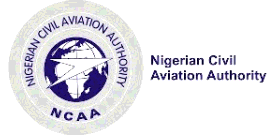 Nigerian passenger traffic to climb 25.7 million in five years
Nigerian passenger traffic to climb 25.7 million in five years
The Nigeria Civil Aviation Authority (NCAA), has estimated that the country’s air passenger volume would grow to 25.73 million by 2029. The Average Revenue Per User (ARPU) is also expected to be about $100.30, the apex regulatory agency forecasted in its report.
Dr. Emeka Okengwu, Gulf Pole Concerns Limited, stated these recently in his paper: ‘Leveraging Global Aviation Finance Mechanisms Reminiscence of the Cape Town Convention,’ presented at the South-West Regional Air Transportation Summit (SWRATS) 2024, hosted by the NCAA.
The 25.73 million estimated passenger traffic is an increase from the current 15.89 million in 2023 and 16.17 million in 2022. This indicated an increase of almost 10 million passenger traffic growth by 2029 when compared to 2023 figure and about nine million growth with the 2022 data as released by NCAA.
Okengwu pointed out that data obtained from the NCAA indicated that the projected user penetration for 2024 is 6.8 per cent, which is expected to grow to 10 per cent by 2029. Also, the projected revenue for the flights market in Nigeria is expected to reach $1.56 billion by 2024, stressing that this figure is projected to grow annually at a rate of 10.59 per cent, hereby resulting in a market volume of $2.58 billion by 2029.
According to him, by 2029, 85 per cent of the total revenue generation in the flights market is expected to come from online sales. Okengwu, however, regretted that despite the array of airlines in Nigeria, none of them was listed on the global alliances or even as an associate member or inter-links co-share.
He added: “There are obvious systemic issues that bother the absence of functional corporate governance structure among airline operators. Passenger traffic with over 92 per cent concentrated around three major airports; Lagos, Abuja and Port Harcourt was put at 15.89 million in 2023, a fall of over 0.28 million from the 16.17 million statistics of 2022.
“As a result of the above, Nigerian airlines operate point –point and scheduled integrity is placed at about 62 per cent. However, it is important to note that Nigeria now boasts of improved aviation infrastructural facilities at the airports’ state of the art navigational aids, modern weather forecasting equipment and highly skilled manpower to ensure safety and comfort of the flying public.”
Okengwu, posited that the present leadership of the Nigerian aviation industry had shown capacity to place it on the global aviation market. He emphasised that concerted efforts must be made to create the pathways into the global alliances if the Nigerian aviation sector would stand a chance of playing at the world stage.
Also, Sen. Buhari Abdulfatai, the Chairman, Senate Committee on Aviation, in his contribution, canvassed for reduction of routes for some indigenous airlines by NCAA to ensure schedule integrity. Abdulfatai lamented that while other countries’ airlines took on-time departure seriously, the reverse was the case with the Nigerian carriers as they continually violated passengers’ rights without sanction from the NCAA.
He proposed that any airline with just two aircraft in its fleet for instance, should be limited to a few airports and landings, maintaining that this would lead to massive reduction in flight delays and cancellations. Abdulfatai, therefore, proposed a minimum of four aircraft for a startup carrier and charged the NCAA to stand up to its responsibilities of oversighting the industry.
He added: “If we have fairness and justice in our system, the industry would attract a lot of people and we would get better services. For instance, Overland Airways, there was a day I flew the airline from Abuja to Ilorin Airport, we were only two passengers onboard; the two of us were in the National Assembly. That was in their early years in 2007.
“But today, the airline is now big; it takes time for you to grow. It’s because Nigerian passengers always take a lot of abuse from the airlines, that is why the airlines continue to treat the passengers without respect.”
Earlier, Capt. Chris Najomo, the Ag. Director-General Civil Aviation (ADGCA), in his welcome address, said that the specific objectives of the summit were to bring together critical stakeholders to advocate for adequate funding, sound financial management and operational safety in the country’s civil aviation industry.
Najomo, who was represented at the occasion by Engr. Godwin Balang, Director, Aerodrome and Airspace Standards (DAAS), also added that the summit also aimed to review and enhance existing service standards to align with international standards and benchmarks set by the International Air Transport Association (IATA), International Civil Aviation Organisation (ICAO) and Airport Council International (ACI), among others.
He explained further that the NCAA had developed key Strategic Focus Areas (SFAs) as part of its Project 2024, which currently served as its Key Performance Indexes (KPIs) goals for the collective corporate governance efforts for the year 2024.
He regretted that the country’s economy was facing significant macroeconomic and developmental challenges, but assured that these were surmountable.
According to him, these could be overcome through implementation of innovative approaches by all.
He added: “The aviation sector aligned with Mr. President’s priority areas through the Honourable Minister’s five-point agenda. This remains crucial given the vital role civil aviation plays in national economic development, international trade and investment opportunities.
“The summit reflects our commitment to realigning our strategies and approaches in fulfilling our constitutional responsibilities, especially as it relates to the strategic initiatives of the Minister and indeed Mr. President.”
Also, Dr. Harold Demuren, the Chairman of the summit, explained that the summit was aimed at setting the roadmap for achieving a more efficient civil aviation and air transportation system in the country, through an inclusive dialogue by critical stakeholders and major actors in the country’s aviation value chain.
He added that the summit would also facilitate the convergence of critical stakeholders to champion adequate funding and sound financial management for service excellence and operational safety in the industry.
